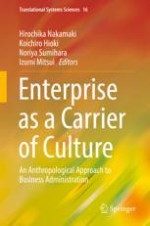2019 | OriginalPaper | Buchkapitel
6. An Orchestral Myth: Maestros Are Born and Made
verfasst von : Yuko Oki
Erschienen in: Enterprise as a Carrier of Culture
Verlag: Springer Singapore
Aktivieren Sie unsere intelligente Suche, um passende Fachinhalte oder Patente zu finden.
Wählen Sie Textabschnitte aus um mit Künstlicher Intelligenz passenden Patente zu finden. powered by
Markieren Sie Textabschnitte, um KI-gestützt weitere passende Inhalte zu finden. powered by
